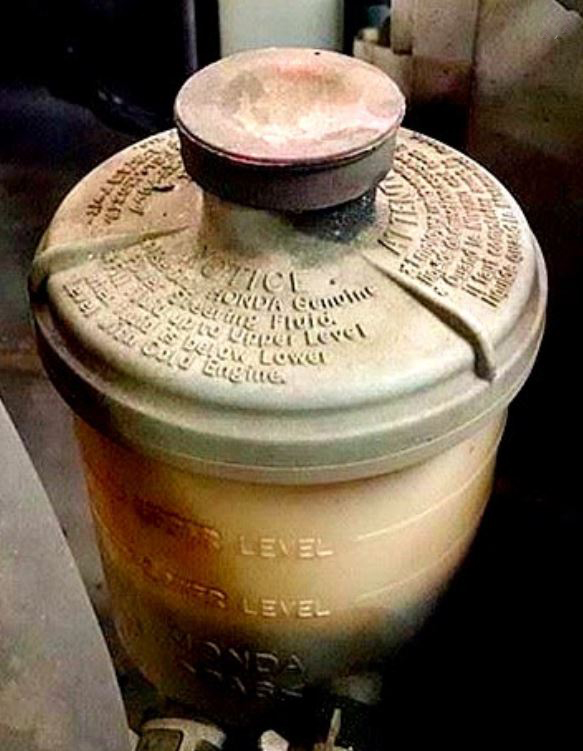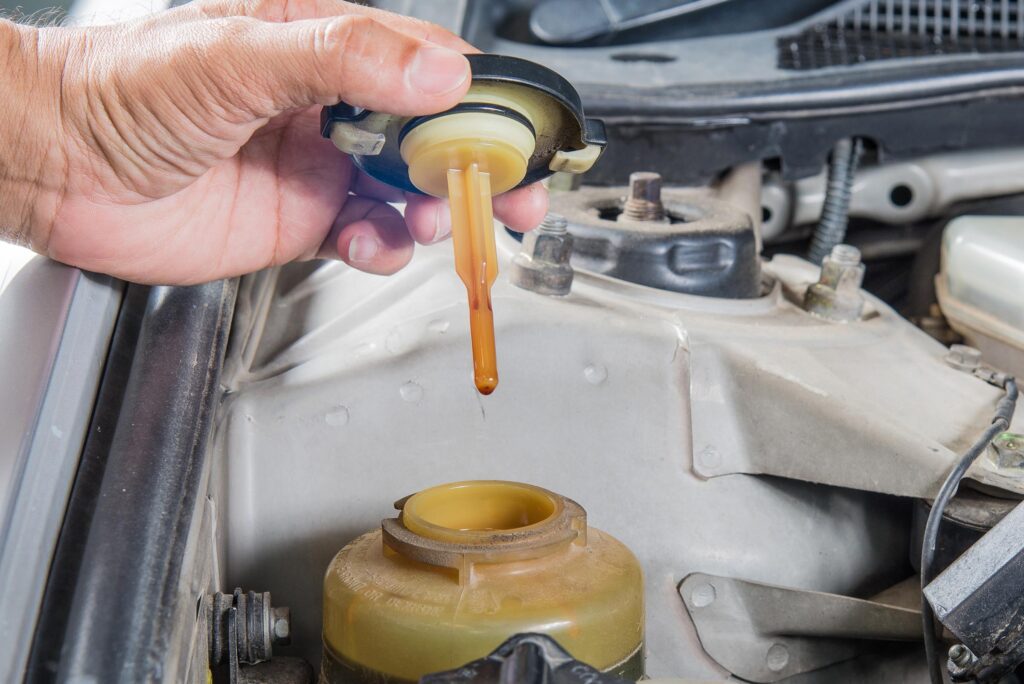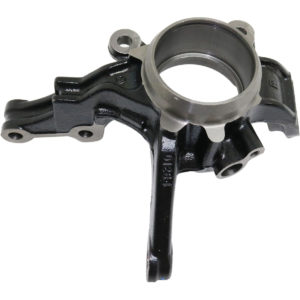When Does the Steering Wheel Squeak and What is the Source?
There are several reasons why your steering squeaks and most of them can be attributed to issues with the power steering system. The noise may be caused by dry ball joints, failed upper strut bearings, a low level or contaminated power steering fluid, defective power steering pump drive belt, friction between the steering wheel housing and trim, or suspension problems.
Typically, the squeaking noises that come from suspension issues or power steering system concerns will be more noticeable during parking lot maneuvers.
Note that the perceived source of a steering wheel squeak can be right at the steering wheel or it can come from the steering column outside and be telegraphed into the vehicle to make it sound like it’s inside the cabin.
If the source of the squeak is related to plastic parts in the upper column area or a dry upper steering column bearing, different steps will be required to isolate and pinpoint the source of the squeak.
Dry Ball Joints due to Busted Boots
Dry ball joints are a common source of a squeaking sound on some vehicles. When the boot is compromised and the grease is washed out so that the ball joint begins to rust, you may not only hear squeaking noises when you turn, you may also feel resistance.
Dry ball joints are a common source of a squeaking sound on some vehicles.
– Richard McCuistian, ASE Certified Master Automobile Technician
Failed Upper Strut Bearings
Dry or failed upper strut bearings can be the cause of squeaking or other odd noises you may sense through the steering wheel during steering maneuvers in a parking lot.
Low Power Steering Fluid
The power steering pump generates pressure to assist the driver in turning the wheels, and the fluid in the reservoir must have the right amount of fluid.

When topping up on power steering fluid, always remember to check the vehicle’s specifications to ensure that the fluid is compatible with the materials used in the power steering system’s seals and hoses.
Using the wrong fluid can cause the seals and hoses to wear out faster than usual and can also lead to fluid leaks.
Power Steering System Failure
Compared to hydraulic power steering, electric power steering offers better handling and steering refinement.
And because electric power steering doesn’t require a pump, it also helps improve fuel economy.
Unfortunately, problems with the system can also arise after some time.
Any one of its parts can cause the steering wheel to squeak. Some of these include the reduction gear, torque sensor, and torsion bar, among others.
In the case of an electrohydraulic power steering system, faulty parts like the hydraulic pump and electric motor can also result in a squeaking steering wheel.
Contaminated Power Steering Fluid
Similar to engine oil, the condition of the power steering fluid can be checked by inspecting the color and smell.
New power steering fluid should be clear and have an amber, pink, or red color, depending on the dye used in the product.
You might need to replace your vehicle’s power steering fluid if it’s dark brown in color and exudes a burnt smell. To do this, you will have to remove the power steering return hose and direct it into a container. Start the engine and add fluid until the fluid coming out the return gets clear. Make sure to wear eye protection and stay clear of moving parts. Funnels may be needed.

Power steering fluid shouldn’t be foamy as well. If it is, it means the fluid has been aerated as a result of low fluid levels or a leaky shaft seal.
If the power steering fluid is tan, it usually means air bubbles are trapped inside the fluid. This can require you to bleed air out of the system.
There might be times when the power steering fluid needs to be flushed and replaced. This is usually done whenever a new part in the power steering system is installed.
If you’re going to turn the wheels back and forth a lot with the vehicle sitting still to bleed the air out of the power steering system, make sure you raise the front end of the car to prevent stress on the steering parts.
Flushing the power steering fluid prevents small pieces of a failed bearing or rotor from circulating in the system. Failure to flush the old fluid can cause metal particles to block the control valve and lead to premature failure of the power steering pump and gear assembly.
Defective Power Steering Pump Drive Belt
A loose, worn, or faulty power steering pump drive belt can result in jerky steering and produce squeaking noises when turning the steering wheel. This is a fairly common cause of squealing while turning, but it doesn’t usually happen if the pump is driven by a serpentine belt with an automatic tensioner.
Some vehicles come with a belt tensioner, but for those that don’t a belt tension gauge is needed to achieve the proper belt tension.

Friction Between the Steering Wheel Housing and Interior Trim
Heat can cause the metal steering wheel housing to expand and generate friction as it comes into contact with the interior trim, resulting in squeaking noises.
Suspension Issues
It’s also possible for your vehicle to make squeaking noises when turning if there are problems with the suspension system.
In most cases, the lack of lubrication in the ball joints, tie rod ends, and u-joints is causing the problem.
Key Takeaways
Several reasons can cause your steering wheel to produce squeaking noises, and most of them can be attributed to issues in the power steering system.
Low or contaminated power steering fluid, a defective drive belt, and friction, among others, are some of the culprits for a squeaking steering wheel.
Make sure to have a professional inspect your vehicle to identify the exact cause of the problem and get it resolved as soon as possible to avoid unwanted issues down the road.
Any information provided on this Website is for informational purposes only and is not intended to replace consultation with a professional mechanic. The accuracy and timeliness of the information may change from the time of publication.





























How will I know if I need a power steering pump if I put fluid in it. I have a 2013 nissan maxima for 5 years